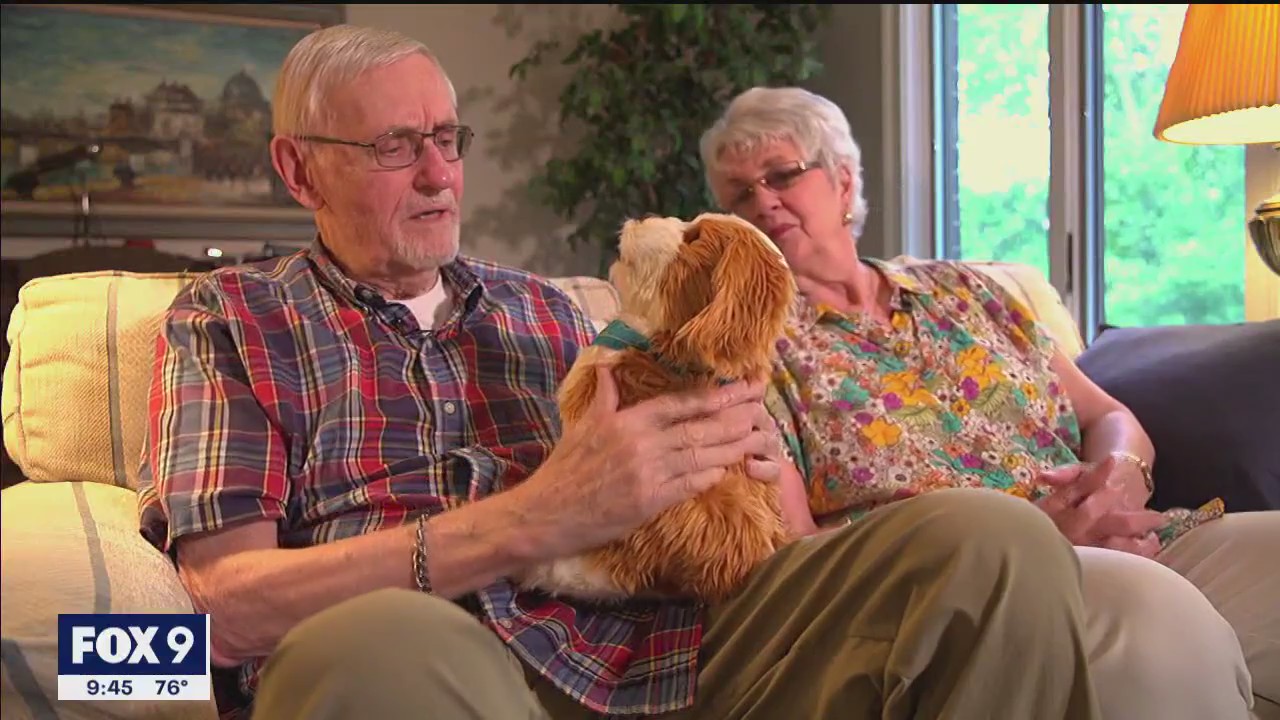Animatronic therapy pets help captivate and comfort people with dementia

Robotic pets used to help dementia patients
A local organization is using robotic pets to bring comfort and joy for those suffering from dementia.
EDINA, Minn. (FOX 9) - In their 58 years of marriage, Diana and Andy Severson have owned four dogs. But their newest canine companion is a little different than all the rest.
"He looks at me and says 'People are going to think we're crazy'. I said 'I don't care. Do you?'" said Diana.
The Seversons of Edina received an animatronic therapy pet from the Normandale Center For Healing and Wholeness, which supports caregivers, about a year ago, nearly a decade after Andy was diagnosed with dementia.
Sometimes Andy can get confused and agitated, but the mechanical playmate he named Muffin helps calm him down, without the disadvantages of having a real animal.
"She doesn't need any grooming. She doesn't need any cleanup. It's easy," said Diana.
The Seversons say the battery-powered pooch barks, pants and turns her head when they pet her, speak to her or hold her.
But more importantly, they say she provides constant companionship, brings back memories of their previous pets, and gives the Seversons something light and fun to talk about, at a time when caring for someone with dementia can take a heavy emotional toll.
"It can give the caregiver a little bit of respite as well. If the pet is keeping them company at the time, and maybe they need to do some things around the house or whatnot. So it really meets many different needs," said Becky Zinn-Caulfield, a caregiver specialist with the Normandale Center.
Studies show robotic pets can reduce stress, boost mood and lower blood pressure for people suffering from dementia.
And the Seversons say just like their real dogs, Muffin has become part of the family.
"She's missed when she is not with us. It may sound a little corny, but we like the little bugger," said Andy.

